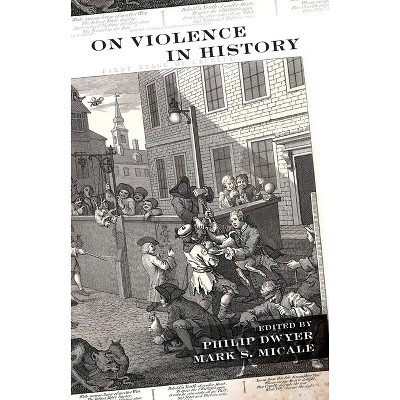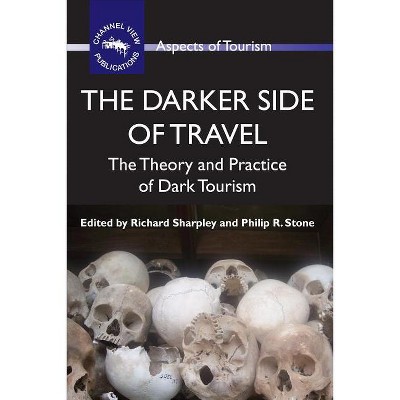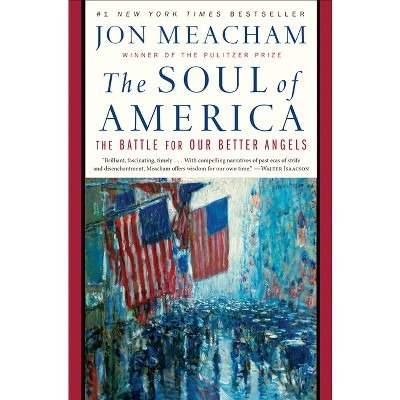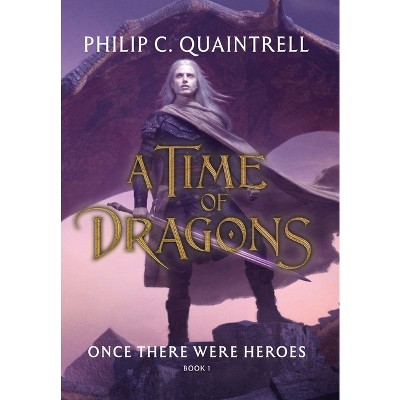The Darker Angels of Our Nature - by Philip Dwyer & Mark Micale (Hardcover)

$100.00 when purchased online
Target Online store #3991
About this item
Highlights
- In The Better Angels of Our Nature Harvard psychologist Steven Pinker argued that modern history has witnessed a dramatic decline in human violence of every kind, and that in the present we are experiencing the most peaceful time in human history.
- About the Author: Philip Dwyer is Professor of History and the founding Director of the Centre for the History of Violence at the University of Newcastle, Australia.
- 416 Pages
- History, Social History
Description
About the Book
"In The Better Angels of Our Nature Harvard psychologist Steven Pinker argued that modern history has witnessed a dramatic decline in human violence of every kind, and that in the present we are experiencing the most peaceful time in human history. But what do top historians think about Pinker's reading of the past? Does his argument stand up to historical analysis? In The Darker Angels of our Nature, fifteen historians of international stature evaluate Pinker's arguments and find them lacking. Studying the history of violence from Soviet Russia to Native America, Medieval England and the Imperial Middle East, these scholars debunk the myth of non-violent modernity. Asserting that the real story of human violence is richer, more interesting and incomparably more complex than Pinker's sweeping, simplified narrative, this book tests, and bests, 'fake history' with expert knowledge"--Book Synopsis
In The Better Angels of Our Nature Harvard psychologist Steven Pinker argued that modern history has witnessed a dramatic decline in human violence of every kind, and that in the present we are experiencing the most peaceful time in human history. But what do top historians think about Pinker's reading of the past? Does his argument stand up to historical analysis?In The Darker Angels of our Nature, seventeen scholars of international stature evaluate Pinker's arguments and find them lacking. Studying the history of violence from Japan and Russia to Native America, Medieval England and the Imperial Middle East, these scholars debunk the myth of non-violent modernity. Asserting that the real story of human violence is richer, more interesting and incomparably more complex than Pinker's sweeping, simplified narrative, this book tests, and bests, 'fake history' with expert knowledge.
Review Quotes
In this calm refuge from the unwarranted claims and relentless optimism of Steven Pinker's recent books, Dwyer, Micale and their thoughtful colleagues offer new and wide-ranging ways to think about violence, history, and the civilizations that we humans have created and destroyed-a refreshing antidote to wishful thinking.
Barbara H. Rosenwein, Professor emerita Department of History, Loyola University Chicago, USA
The historians in this constellation of essays come at Pinker's controversial thesis with both hammer and tongs and a fine-tooth comb. With passion and care, they require fans and critics alike to consider the historical conditions that undergird arguments about the psychology of violence. It's a book that even Pinker will have to reckon with.
Antoinette Burton, The University of Illinois at Urbana-Champaign, USA
This bracing and comprehensive set of essays on Steven Pinker's influential case for the decline of violence is definitive in its arguments, while also controlled and justified in its exasperation. The implacable engagement demands a rethinking of the relationship between history and social science.
Samuel Moyn, Henry R. Luce Professor of Jurisprudence and Professor of History, Yale University, USA
About the Author
Philip Dwyer is Professor of History and the founding Director of the Centre for the History of Violence at the University of Newcastle, Australia. He has published widely on the Revolutionary and Napoleonic eras, including a three-volume biography of Napoleon.
Mark Micale is Emeritus Professor of History at the University of Illinois in Urbana-Champaign, USA. He is the author or editor of seven books, including Beyond the Unconscious; Discovering the History of Psychiatry; Traumatic Pasts: History, Psychiatry, and Trauma in the Modern Age, 1870-1930; The Mind of Modernism: Medicine, Psychology, and the Cultural Arts in Europe and America, 1880-1940; and Hysterical Men: The Hidden History of Male Nervous Illness, and Traumatic Pasts in Asia: History, Psychiatry, and Trauma from the 1930s to the Present (forthcoming).Dimensions (Overall): 9.21 Inches (H) x 6.14 Inches (W) x .94 Inches (D)
Weight: 1.65 Pounds
Suggested Age: 22 Years and Up
Number of Pages: 416
Genre: History
Sub-Genre: Social History
Publisher: Bloomsbury Publishing PLC
Format: Hardcover
Author: Philip Dwyer & Mark Micale
Language: English
Street Date: September 9, 2021
TCIN: 93043428
UPC: 9781350140608
Item Number (DPCI): 247-28-9956
Origin: Made in the USA or Imported
If the item details above aren’t accurate or complete, we want to know about it.
Shipping details
Estimated ship dimensions: 0.94 inches length x 6.14 inches width x 9.21 inches height
Estimated ship weight: 1.65 pounds
We regret that this item cannot be shipped to PO Boxes.
This item cannot be shipped to the following locations: American Samoa (see also separate entry under AS), Guam (see also separate entry under GU), Northern Mariana Islands, Puerto Rico (see also separate entry under PR), United States Minor Outlying Islands, Virgin Islands, U.S., APO/FPO
Return details
This item can be returned to any Target store or Target.com.
This item must be returned within 90 days of the date it was purchased in store, shipped, delivered by a Shipt shopper, or made ready for pickup.
See the return policy for complete information.











